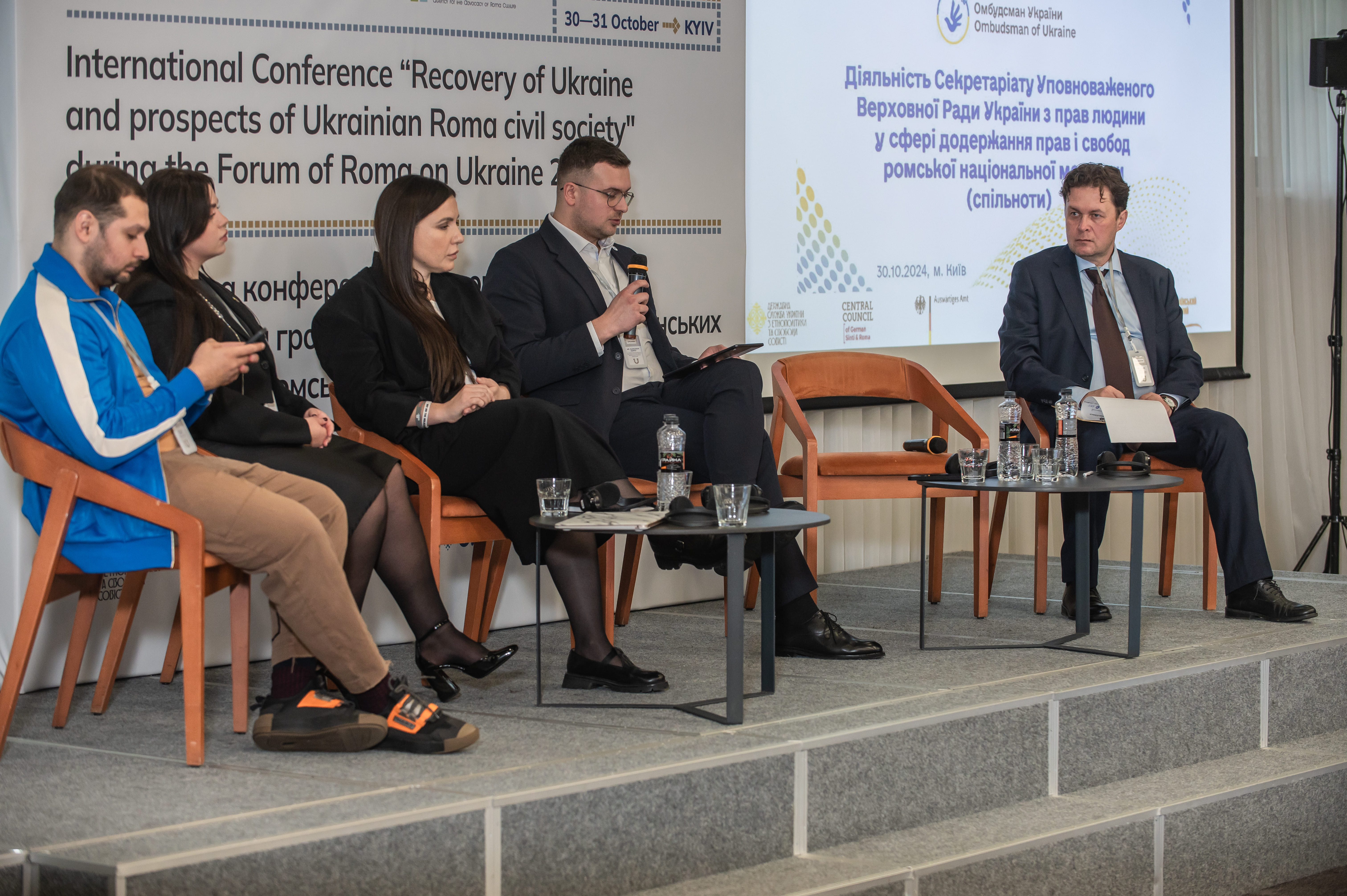Yevhen Magda: «A multi-ethnic political nation is our competitive advantage»
The Chełm-Warsaw train was running towards Lublin which was the destination for a young Romani woman with little children. She had neither a ticket nor money to buy one. Fellow passengers were kind enough to cover the costs of her homeward travel. At Lublin Main Railway Station a woman in a motley neckerchief with three kids who were constantly yanking her sleeve, swiftly vanished in a crowd of passengers. This was the first encounter of Yevhen Magda, a Ukrainian historian, with representatives of the Roma community—yes, on the road, as he was travelling.
This encounter was a brief one and not at all filled with a dialogue. There was one important detail, though, in this journey story which was noted by Mr Yevhen: the fact that different people in this railway car looked at the Roma woman in a different manner. Most of them, however, were rather positive in their interaction and in their perception of «an other one».
«In democratic societies, there will always exist different views on certain processes; that said, one should find common ground, a platform to keep working on. The process of construction of a political nation takes place through proper action. A multi-ethnic political nation is our competitive advantage and we shall keep using it as we actively move ahead», — said Yevhen Magda after he had moderated one of the panels within the International Conference in Kyiv on the Strategy of Romani Communities and Build-up of Ukrainian Civil Society.
 In the photo: participants of the International Conference «Restoration of Ukraine and Prospects of the Civil Society of Ukrainian Roma» (Yevhen Magda – far right). Kyiv. October 30, 2024. Photo: «ARСA»
In the photo: participants of the International Conference «Restoration of Ukraine and Prospects of the Civil Society of Ukrainian Roma» (Yevhen Magda – far right). Kyiv. October 30, 2024. Photo: «ARСA»
Throughout his life, Yevhen Magda has been conducted in-depth research into the Ukrainian political establishment and Ukrainian civil society. He is a Ukrainian political scientist, a historian, a journalist, and Director of the Institute of Global Policy. He has authored four books covering the topic of the Russian-Ukrainian War: «Hybrid War: to Survive and to Win (2015)», «The Reflection Games: How is Ukraine Viewed by the World (2016, co-authored with Tetiana Vodotyka)», «Russia’s Hybrid Aggression: Lessons to be Learnt by Europe (2017)», «The Sixth. Memoirs about the Future (2017)». In addition to this, Mr Yevhen is also researching the issues of ethnic communities, also in the context of Ukraine. We have talked to him as we discussed the matter of inclusion of Romani communities into the build-up of post-war Ukraine.
«One just cannot change everything by just waving a magic wand. There should be a clear strategy in place, a vision, a road map directing us this way or the other», — says the historian.
Roma fighting as Ukrainian Armed Forces soldiers are part of the most prestigious and the most widespread profession in the present-day Ukraine. Mr Yevhen considers this to be another instrument that will be efficient in the process of transformation of the society as it will help dismantle outdated stereotypes.
The war changes everything. It forces us to reconsider what seemed to be important and useful just yesterday. It changes the architecture of human memory and perception of things in the historical context. It creates new challenges, filled with brand new meaning, which an individual then faces. But there always remains something valuable. Something you can stand on: a firm ground.
«You are either in UAF or for the UAF; there is no other way. You either fight or build up a foundation supporting the struggle. After all, the experience which Ukraine has received and the mistakes it has owned up to shall constitute grounds for our long-term vision for many years ahead», — summarises Yevhen Magda.
 In the photo: Director of the Institute of World Policy Yevhen Magda. Photo by ARСA
In the photo: Director of the Institute of World Policy Yevhen Magda. Photo by ARСA
See also
- «Невидимі. Стійкість: минуле і сучасність ромів». Як зрозуміти історію ромів через візуальну культу
- Альфреда Марковська: історія життя і порятунку інших
- «Дивись і не забувай»: 15 років Dikh He Na Bister у Кракові
- ФОТОРЕПОРТАЖ: У Києві відкрили виставку про ромську історію та ідентичність
- «Відновлення пам'яті – роми у Варшавському гетто». Історична екскурсія у Варшаві
- PHOTO REPORT: Events commemorating the victims of the Roma genocide in Babyn Yar
- 2 серпня — Міжнародний день памʼяті жертв геноциду ромів
- Коли допомога — це більше, ніж ваучер
- Антициганізм поруч: як розпізнати упередження у звичних словах і жартах
- Стереотип замість культури: як TikTok спрощує ромську ідентичність